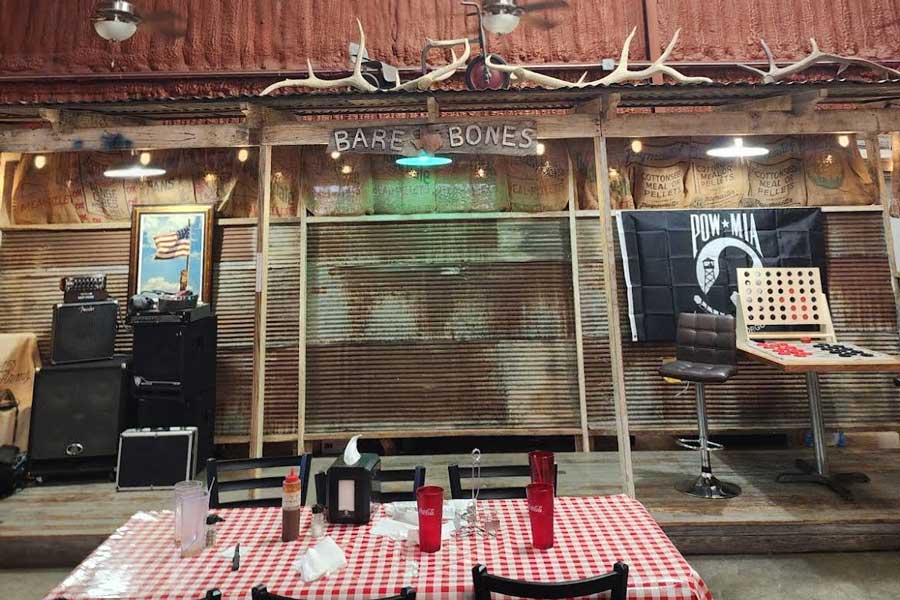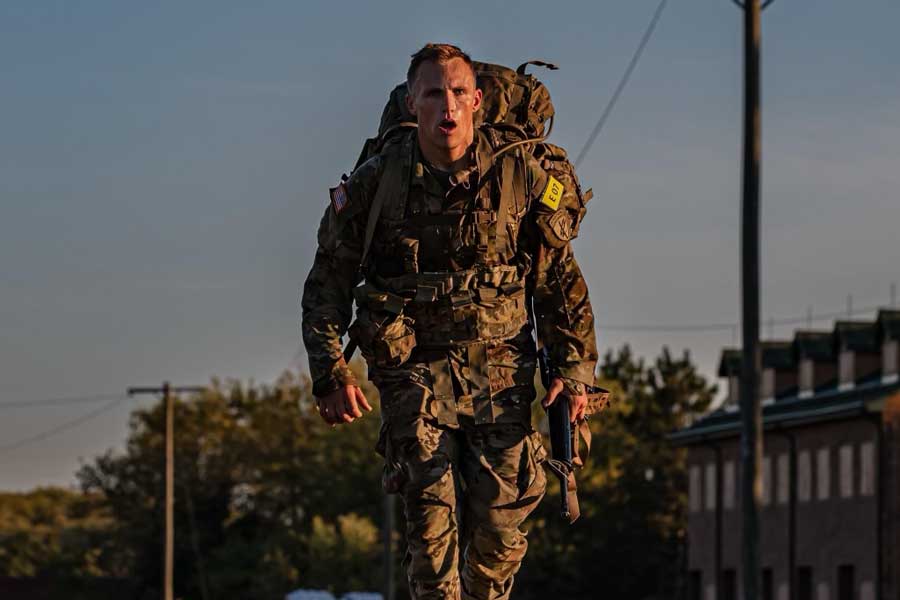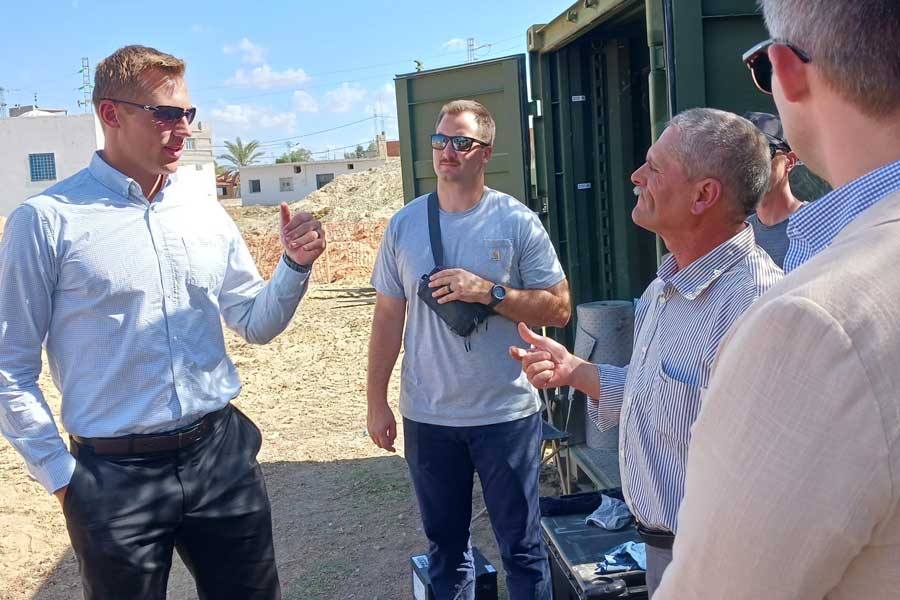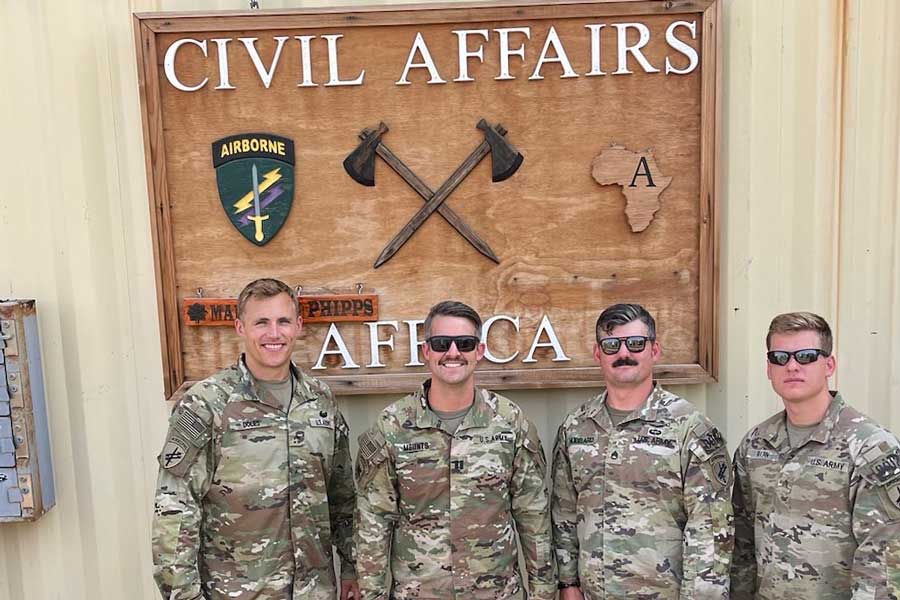Back Home from a Peacetime Deployment. Is That What War Is? Of Course Not.
It all felt so familiar, which was jarring. We’d been listening to white noise for long enough that turning back to the clear channel was comforting, but a little too loud. Like stepping outside before your eyes adjusted.
Before takeoff, everything and everyone mixed into a static that we couldn’t make sense of, but found a way to blend into. Then we crossed the Mediterranean for a quick stop in Paris before landing in Atlanta to a barrage of sensory input on this spring day in April 2024. Overhearing conversations, recognizing relational dynamics, decoding wardrobe choices. Less patience for our social blunders. A faster pace. Trying to take it all in.
One more flight and a day later, the old Texas barbecue joint along State Highway 36 let us ease back into the homefront. It welcomed us with a steady handshake, not frantic hugs and kisses.
We unpacked ourselves from the van and strode towards the aged brown barn, flanked by bluebonnets and honey mesquites, suggesting spring’s arrival. Inside, wood and sheet metal, antique decorations, long ceiling fans over red and white checkered tablecloths. A Stetson-clad troubadour gearing up to serenade tonight’s small crowd. Old Glory hanging from the beam. The flag we only saw flying on embassy grounds for months but that filled our hearts every time we did.
“Sir? Sir?”
“Sorry, yes ma’am?”
“Whad’ll it be for ya? Our menu’s up here,” nodding over her shoulder, “or you can get one of our specials,” tapping the board below her. A friendly smile, no real hurry.

Inside Bare Bones BBQ in Gatesville, Texas, where Doles and his friends eased back into life on the homefront. (Photo courtesy of Bare Bones BBQ)
Pulled pork. Smoked ribs. The forbidden fruit, now free for the taking. It smelled like a campfire inside. I took my variety plate to the open table that Dom claimed. Chris, Chandler, Berto, and Peter followed suit, each salivating over their protein and fixings. We always sat together. Gentle country music started rising from the troubadour’s corner. The kind of sad that makes you feel good.
I looked around and took it in. We’d entered a different dimension. Was that all just a dream?
North Africa. My first deployment. Exploring the old city. Tight, winding streets, packed with merchants and memories of a colonial soldier walking this path, wondering when a revolutionary would cut his throat and disappear into the labyrinth. Melodic calls to prayer and overwhelming incense. The energy of a land with unanswered questions and incomplete tasks.
Was a flight really all that separated us from that world?
A round of Lone Star on draft arrived.
“Cheers, to winning the war!”
Laughs and some clinks.
War. Is that what that was? Ask me while I’m looking at my orders—“in support of OPERATION ENDURING FREEDOM — HORN OF AFRICA”—and I suppose the answer’s yes, in some bureaucratic sense. But really? Of course not.
Ask me next to a man whose toes froze off under artillery barrages in Bastogne, and I’ll sheepishly apologize for the comforts I enjoyed. If I’d been born 50 years earlier, it might have been Saigon. Ten: Mosul or Kandahar. But 1995 it was. Was it enough that we did the job we were asked to do?

Doles during a ruck march while training at Fort McCoy in Wisconsin. (Photo courtesy of the author)
The war on terror started with one of my earliest memories, one that left a scar on my nation and changed the world. Now, it was only congressional funding flukes that said we were “fighting” the same war two decades later. But no longer. Our replacements wouldn’t find “OEF” on their orders. The war must be over. Thus, the victory we drank to.
Beans, mac and cheese, brisket. A rise of laughter from old friends across the room didn’t bother anyone. The radio frequency was getting clearer. But it wasn’t too loud.
We had no real delusions of grandeur. Most of the time, at least.
High visibility mission … stabilizing assistance projects … access and influence … strategic competition … security cooperation … bolstering capabilities … a vital role in a crucial partnership.

Doles talking with the mayor of Ain Ghelal, Tunisia, during a US Army/Navy joint assistance project. (Photo courtesy of the author)
We knew all the lines and could rattle them off when a VIP asked what we were doing. Now the mission was accomplished and we’d have awards to show for it.
But most people at home couldn’t find Tunis on a map. So how important was it really? What, then, were people thanking us for (if they knew)? For traveling the world and working a dream job on bonus pay? Thanks for paying your taxes.
An old couple shuffled onto the dance floor, holding each other up while they stepped to the troubadour’s song, just happy to be together.
Award-Winning Journalism in Your Inbox
Yes, I knew what my sacrifice was. Delivering Bethany flowers on our anniversary because I couldn’t be there. Condemning Mom to 10 months of worry with a blue star in her window. Birthdays, holidays, merrymaking, and community life. The things I missed. I couldn’t get time back, so I hope it was well spent.
Of course it was. A purpose-filled role in a great effort. A noble mission you could be proud of. A team that turned into a brotherhood, so familiar now that one glance might encode three inside jokes. Enough danger to keep it interesting, but no more. Embassy parties and language school. Meeting my heroes from the persecuted church and finding good fellowship. New food, new customs. Always learning, every day an adventure.
But it was never meant to last forever, right? I had a wife and a life to get back to, and just had a few post-deployment boxes to check before they’d send me home.
Chris was talking about horses when I tuned back in.
“So these guys rode mustangs all the way from Mexico to Canada, to prove something about the horses and themselves, I guess.” He finished off his Lone Star. “But when they finally get to the Canadian border, one guy stops and just looks at the line.”
“What’s his deal?”
“He said that if he crossed into Canada, it would mean his journey was over. And I guess he just wasn’t ready for that or something.”

From left to right, Doles, Capt. Matthew Mounts, Staff Sgt. Christopher Hubbard, Sgt. Chandler Ryan staging in Djibouti before moving on to the mission in Tunisia. (Photo courtesy of the author)
I looked down at my glass. The cowboy’s guitar hit a minor chord.
But when does a journey end?
Tolkien’s hobbits had to return to the Shire. A batter isn’t finished until he’s back at home plate. Does a journey really end until you’re home again, but changed? If it stays a part of you, does it ever really end?
And who decides if it mattered?
No parades when we land, no pomp and circumstance. Just a fit-looking group in the terminal with a few extra duffels. Don’t they know what we just did? No, they don’t. The satisfaction of a mission accomplished, the quiet ease that follows a job well done. That’s enough.
I start to finish off my Lone Star, but pause. There’s one more thing.
Our Journalism Depends on Your Support
A sense of discontent lurks deep inside; hidden, because it doesn’t deserve the light of day. It’s just so wrong—twisted, even? But I’ll tell you what it is, grateful as you are for my service. Everyone dreams at one point or another of being a hero. Of seeing action. Perhaps even returning a tragic hero, with their own red badge of courage.
I told you it was wrong.
Those who enlist have probably let that dream fester longer than the average kid, longer still for those who deploy to a war zone, or a “war zone.” So what happens when you go to “war,” but it’s peacetime and you don’t come home with a war story? The right answer, and the one 99% of me believes, is that you thank God this was your experience.
A war story means someone died. Which means someone killed. No one won. How many millions of soldiers throughout history, lying in early graves or returning with all sorts of scars, would give anything to have my experience with “war”? Yes and amen, but tell me why 1% of me can’t seem to understand this.
I finish the Lone Star. Ready or not, it’s time to move on.
This War Horse reflection was edited by Mike Frankel, fact-checked by Jess Rohan, and copy-edited by Mitchell Hansen-Dewar. Hrisanthi Pickett wrote the headline.





Comments are closed.